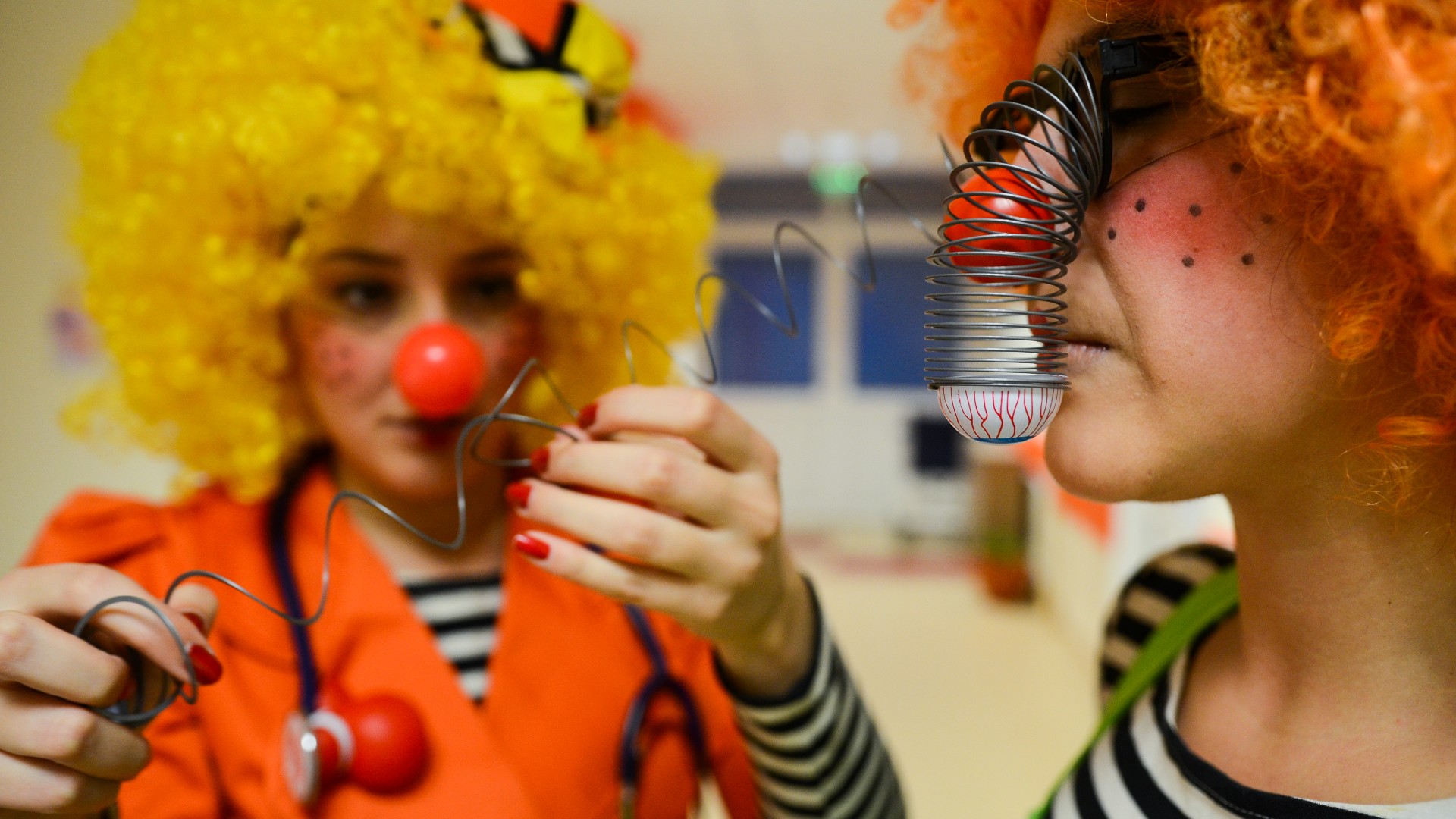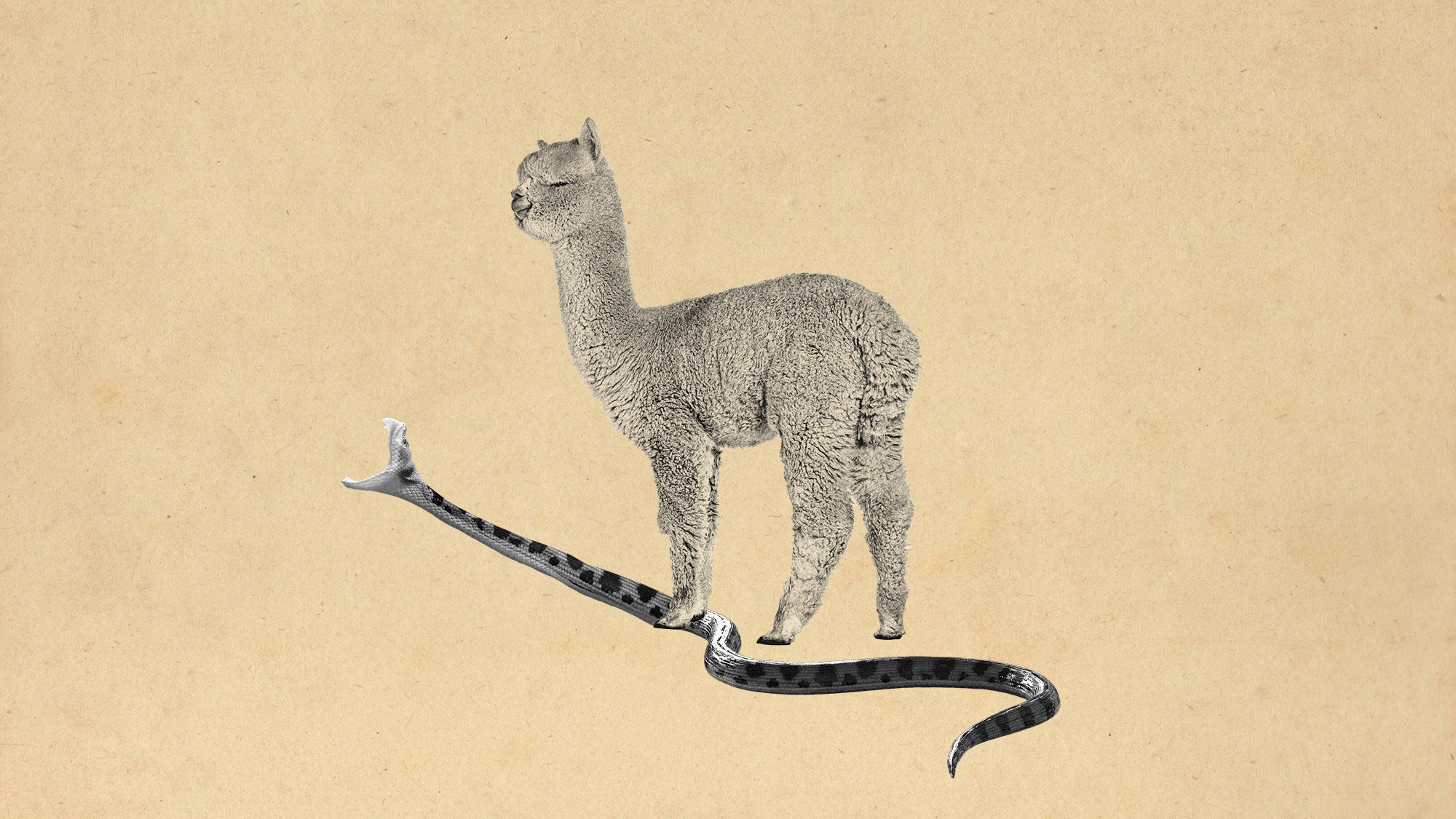Do medical clowns really work?
Growing body of evidence suggests laughter and joy are key ingredients in a patient's recovery – even among adults

A free daily email with the biggest news stories of the day – and the best features from TheWeek.com
You are now subscribed
Your newsletter sign-up was successful
New research into the positive effects medical clowns can have on children with pneumonia has added to the growing body of evidence suggesting laughter and joy are key ingredients in a patient's recovery – even among adults.
The team at Carmel Medical Center in Haifa, Israel, randomly assigned 26 children and teenagers, aged between 2 and 18, to be visited by medical clowns for 15 minutes, twice a day, up to two days after they arrived at the centre. Another control group of 25 children and teenagers received the same care but were not visited by clowns.
The results, presented at the European Respiratory Society congress in Vienna and published in New Scientist, revealed that those children visited by clowns stayed at the centre an average of 44 hours, compared to 70 hours for those without clown visits. Likewise, children visited by a clown only needed two days of intravenous antibiotics treatment, compared to three days in the control group.
The Week
Escape your echo chamber. Get the facts behind the news, plus analysis from multiple perspectives.

Sign up for The Week's Free Newsletters
From our morning news briefing to a weekly Good News Newsletter, get the best of The Week delivered directly to your inbox.
From our morning news briefing to a weekly Good News Newsletter, get the best of The Week delivered directly to your inbox.
The researchers also noted a "significant" decrease in respiratory rate, heart rate and inflammatory markers in the group who saw a clown.
A history of medical clowning
While the term "medical clowning" is relatively new, the practice is thought to date back to the time of Hippocrates when clowns worked in hospitals "because doctors believed that humour had positive effects on health", said Kinder.
According to a paper in Europe's Journal of Psychology, a clown trio named the Fratellini Brothers began visiting hospitalised children to improve their moods in early 19th-century France, but it was not until the mid-1980s when the presence of professional clowns as members of hospital health care teams became widespread.
By 2020 there were at least 40 Healthcare Clowning Organisations operating in 21 countries in Europe alone, according to the European Federation of Healthcare Clown Organisations. The practice is now spreading around the world and a gropu in Delhi was recently highlighted in The New Indian Express.
A free daily email with the biggest news stories of the day – and the best features from TheWeek.com
A laughing matter
As well as anecdotal evidence, there is a growing research field that has found medical clowns can reduce stress and anxiety among young people in hospital, said Springer Report, improve their sleep patterns while in recovery, as reported in Nature and aid doctor-patient communication.
A study published in 2022 in the journal Qualitative Health Research found that medical clowns possess at least 40 significant qualities that yield measurable results in a patient's path toward healing.
While "a lot of the focus in the field of hospital clowning has been on how it relates to children," said Kinder, "the truth is that it can help adults too."
A 2017 report from Room Circus Medical Clowning found they improve the well-being and behaviours of adults with dementia and Alzheimer's disease by increasing their responsiveness and happiness and decreasing their agitation. They improve the quality of life of patients in outpatient oncology and dialysis wards, help adults in psychiatric wards, and for women undergoing in vitro fertilisation and embryo transfer treatment, interactions with medical clowns significantly improve pregnancy rates.
A renewed sense of independence
In the Haifa trial, three medical clowns from Israeli-based The Dream Doctors Project used various techniques to relax the patient, including music, singing and guided imagination. They also encouraged the children to drink and eat by themselves again, giving them a renewed sense of independence.
The practice of medical clowning, while "not a standardised interaction" helps to "alleviate stress and anxiety, improves psychological adjustment to the hospital environment and allows patients to better participate in treatment plans", which "in turn helps children to recuperate faster", Dr Karin Yaacoby-Bianu, who led the trial, said.
"Laughter and humour may also have direct physiological benefits by lowering respiratory and heart rates, reducing air trapping, modulating hormones, and enhancing the immune function," she concluded.
"Play can also improve young people's sense of well-being, mood, their energy levels and sense of confidence and ability in their bodies," added Kelsey Graber at the University of Cambridge.
-
 How the FCC’s ‘equal time’ rule works
How the FCC’s ‘equal time’ rule worksIn the Spotlight The law is at the heart of the Colbert-CBS conflict
-
 What is the endgame in the DHS shutdown?
What is the endgame in the DHS shutdown?Today’s Big Question Democrats want to rein in ICE’s immigration crackdown
-
 ‘Poor time management isn’t just an inconvenience’
‘Poor time management isn’t just an inconvenience’Instant Opinion Opinion, comment and editorials of the day
-
 Scientists are worried about amoebas
Scientists are worried about amoebasUnder the radar Small and very mighty
-
 Metal-based compounds may be the future of antibiotics
Metal-based compounds may be the future of antibioticsUnder the radar Robots can help develop them
-
 A Nipah virus outbreak in India has brought back Covid-era surveillance
A Nipah virus outbreak in India has brought back Covid-era surveillanceUnder the radar The disease can spread through animals and humans
-
 Deaths of children under 5 have gone up for the first time this century
Deaths of children under 5 have gone up for the first time this centuryUnder the radar Poor funding is the culprit
-
 A fentanyl vaccine may be on the horizon
A fentanyl vaccine may be on the horizonUnder the radar Taking a serious jab at the opioid epidemic
-
 RFK Jr. sets his sights on linking antidepressants to mass violence
RFK Jr. sets his sights on linking antidepressants to mass violenceThe Explainer The health secretary’s crusade to Make America Healthy Again has vital mental health medications on the agenda
-
 More adults are dying before the age of 65
More adults are dying before the age of 65Under the radar The phenomenon is more pronounced in Black and low-income populations
-
 Scientists have developed a broad-spectrum snake bite antivenom
Scientists have developed a broad-spectrum snake bite antivenomUnder the radar It works on some of the most dangerous species